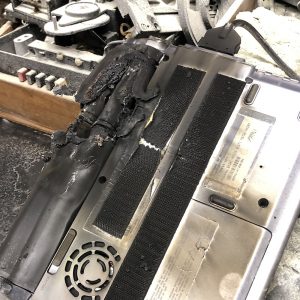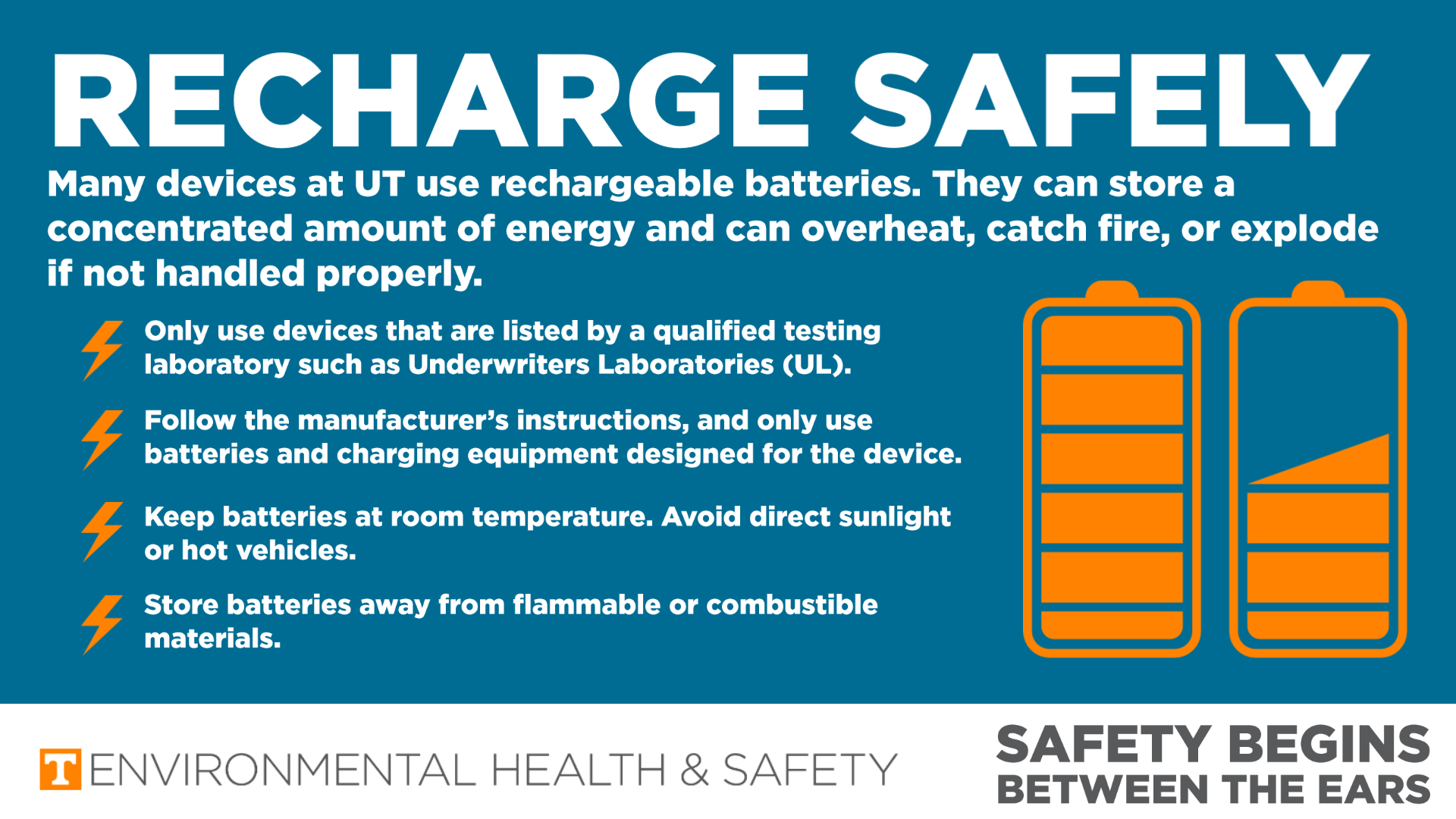 Many devices use rechargeable batteries at UT, at home, or out and about in our mobile lives. Rechargeable batteries can store a concentrate amount of energy and can overheat, catch fire, or explode if not handled properly.
Many devices use rechargeable batteries at UT, at home, or out and about in our mobile lives. Rechargeable batteries can store a concentrate amount of energy and can overheat, catch fire, or explode if not handled properly.
Rechargeable batteries present significant issues that have caused damage on the UTK campus. The burned laptop shown here is believed to have been the origin of a fire that caused significant damage in Strong Hall in 2019.
Other incidents have been reported around the University of Tennessee System. It is very important that we follow some basic guidelines when handling rechargeable batteries in our offices, industrial areas, or laboratories.

What can you do?
- Only use devices that are listed by a qualified testing laboratory such as Underwriters Laboratories (UL).
- Follow the manufacturer’s instructions, and only use batteries and charging equipment designed for the device.
- Keep batteries at room temperature. Avoid direct sunlight or hot vehicles.
- Store batteries away from flammable or combustible materials.
- If you are recharging a vehicle or other lead-acid battery it is also important to ensure that your charging station has adequate ventilation. Recharging lead-acid batteries generates flammable and odorless hydrogen gas.
Remember these tips and consult EHS if you have questions.